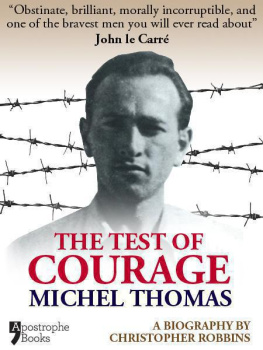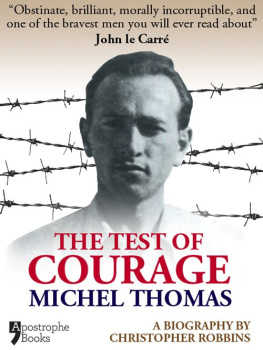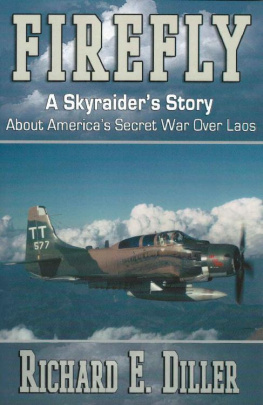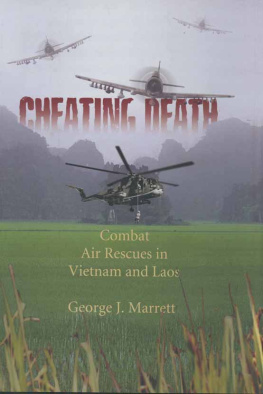Christopher Robbins - The Ravens: The Men Who Flew in Americas Secret War in Laos
Here you can read online Christopher Robbins - The Ravens: The Men Who Flew in Americas Secret War in Laos full text of the book (entire story) in english for free. Download pdf and epub, get meaning, cover and reviews about this ebook. year: 1987, publisher: Crown, genre: Detective and thriller. Description of the work, (preface) as well as reviews are available. Best literature library LitArk.com created for fans of good reading and offers a wide selection of genres:
Romance novel
Science fiction
Adventure
Detective
Science
History
Home and family
Prose
Art
Politics
Computer
Non-fiction
Religion
Business
Children
Humor
Choose a favorite category and find really read worthwhile books. Enjoy immersion in the world of imagination, feel the emotions of the characters or learn something new for yourself, make an fascinating discovery.

- Book:The Ravens: The Men Who Flew in Americas Secret War in Laos
- Author:
- Publisher:Crown
- Genre:
- Year:1987
- Rating:3 / 5
- Favourites:Add to favourites
- Your mark:
- 60
- 1
- 2
- 3
- 4
- 5
The Ravens: The Men Who Flew in Americas Secret War in Laos: summary, description and annotation
We offer to read an annotation, description, summary or preface (depends on what the author of the book "The Ravens: The Men Who Flew in Americas Secret War in Laos" wrote himself). If you haven't found the necessary information about the book — write in the comments, we will try to find it.
The Ravens: The Men Who Flew in Americas Secret War in Laos — read online for free the complete book (whole text) full work
Below is the text of the book, divided by pages. System saving the place of the last page read, allows you to conveniently read the book "The Ravens: The Men Who Flew in Americas Secret War in Laos" online for free, without having to search again every time where you left off. Put a bookmark, and you can go to the page where you finished reading at any time.
Font size:
Interval:
Bookmark:
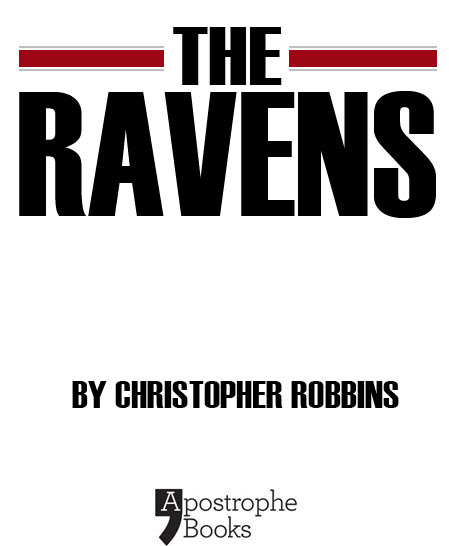
www.apostrophebooks.com
For the Ravens who never flew home,
and the Hmong who can never return.
And in memory of my father.
Prologue: Myth
As the war dragged on, so the myth grew. It started in the mid-1960s as a mix of gossip and bar talk among a battle-hardened elite who told stories that seemed fantastic to everyone who heard them. Apparently, there was another war even nastier than the one in Vietnam, and so secret that the location of the country in which it was being fought was classified. The cognoscenti simply referred to it as the Other Theater. The men who chose to fight in it were handpicked volunteers, and anyone accepted for a tour seemed to disappear as if from the face of the earth.
The pilots in the Other Theater were military men, but flew into battle in civilian clothes - denim cutoffs, T-shirts, cowboy hats, and dark glasses, so people said. They fought with obsolete propeller aircraft, the discarded junk of an earlier era, and suffered the highest casualty rate of the Indochinese War - as high as 50 percent, so the story went. Every man had a price put on his head by the enemy and was protected by his own personal bodyguard. Each pilot was obliged to carry a small pill of lethal shellfish toxin, especially created by the CIA, which he had sworn to take if he ever fell into the hands of the enemy. Their job was to fly as the winged artillery of some fearsome warlord, who led an army of stone-age mercenaries in the pay of the CIA, and they operated out of a secret city hidden in the mountains of a jungle kingdom on the Red Chinese border.
It certainly sounded farfetched, yet the talk emanated from people who commanded respect. Men like the Special Forces soldiers who fought behind enemy lines, CIA case officers who lived in the field year after year, and the fighter pilots who flew over North Vietnam. The pilots spoke of colleagues who had vanished into a highly classified operation code-named the Steve Canyon Program.
When such men reappeared they had gone through a startling metamorphosis. In the military world of spit, polish, and crew-cuts, they stood apart: some sported long hair and mutton-chop whiskers or curling, waxed mustachios, and many wore heavy gold bracelets and GMT Master Rolex watches with wide gold bands. If they happened to be on the edge of a combat zone they carried a 9 mm pistol in a holster, the preferred weapon of the professional soldier of fortune. And, like a caste mark, each wore a 22-karat gold ring that had an oriental royal crest set into a red cloisonn top, with a roughly cut piece of locally procured diamond at its center.
The greatest change of all was not in their appearance, but in their manner. Self-confident to the point of arrogance and disdainful of anyone outside of their own group, they had the distant air of people inducted into a powerful and mystical secret society.
Insiders who worked with them knew these pilots as the Ravens. It was only natural that such a romantic group should generate talk. That almost all of it was true, in one form or another, was never established at the time. The secrecy of their activities, and the very fact of their actual existence, was guarded throughout the war. Even the Air Force colonels whose job it was to interview new pilots for the program had no clear idea of what the mission involved.
The secret remained closely guarded until recently. A large number of the documents and oral histories relating to the activities of the Ravens during the Indochinese war remained classified until 2006. An official history of the war in which the Ravens fought, prepared by Air Force historians with Top Secret security clearances, is still partially excised.
The legend has become hazy, a half-remembered war story known only to a few veterans of Vietnam. The Steve Canyon Program? Yeah, I remember. The Ravens - a weird bunch of guys who lived and fought out there in the jungle in the Other Theater somewhere. Hell, what was the name of the country?

1. Chance
Want to take a chance?
The men who found themselves in the secret war had first chosen to draw the Chance card in Vietnam. Later it would all seem part of the peculiar nature of things that their very first experience of war should be the board of a Monopoly-style game.
It was the brainchild of an enterprising officer who briefed newly arrived young pilots assigned to Vietnam as forward air controllers (FACs), whose job was to direct fighter-bombers onto targets from small, vulnerable spotter planes. He had organized an elaborate and complex briefing into a more readily remembered game patterned on Monopoly. Laid out on the board for the newcomer was his years tour. A small model plane was moved square by square around the board, while the briefing officer explained what to expect in the months ahead. Instead of moving from Broadway to Boardwalk, the FAC was taken from Day One to DEROS (date of eligible return from overseas).
The first moves on the board covered such dull stuff as aircraft maintenance, radio procedures, and the Rules of Engagement. The briefing officer attempted to enliven his description of the first few weeks of technical drudgery with a spirited talk on the art of living in a war zone, as the model plane was moved onto squares marked Life on Base and Indigenous Population. The Monopoly briefing took newcomers through the gradual process where an FNG (fucking new guy) developed into an old head. Instead of acquiring houses or hotels, the players won experience, promotion, and medals. Jail represented the perils of court-martial for those who might be found guilty of conduct unbecoming to an officer, or who violated the Rules of Engagement.
The briefing officer moved the model plane around the board, explaining the various jobs which might be assigned. At one base a FAC would be working with American troops in the field - a very high priority; at another he might be working with Vietnamese or Korean troops, and adapt accordingly. There were FACs who flew over the Ho Chi Minh Trail, others who only worked at night. From time to time a FAC would be called in to oversee a search-and-rescue (SAR) mission for a downed fighter or helicopter pilot.
The pilots were not actually asked to throw dice, but half-way around the board at the point representing the six-month mark of the tour, they were invited to take a chance. The briefing officer took on a mischievous, secretive look. The plane had been moved onto a square marked Chance. He looked up at his audience, pausing for dramatic effect. Anyone want to take a chance?
The groups reaction was always interesting. A couple of the new FACs frowned, uncertain how to take this unmilitary levity; others shrugged or grinned sheepishly, waiting for the briefing officer to take back the initiative and explain the next move; but occasionally there would be someone who would answer the question almost before it had been asked. Want to take a chance? Sure!
The briefing officer picked up the Chance card, the only one lying on the board, and held it up for everyone to see. It read: Steve Canyon Program.
The pilots waited to hear what the officer had to say about the Steve Canyon Program, but he just kept grinning at them crookedly and cultivating the look of mischief and mystery, until someone inevitably asked, Well, what is it?
It seemed for a moment as if the officer was going to say nothing at all. I cant tell you much about it, he allowed finally, enjoying the intrigue, but if you are on the adventure-some side and something like this might interest you, we can have certain people talk to you. After youve been here six months.
Next pageFont size:
Interval:
Bookmark:
Similar books «The Ravens: The Men Who Flew in Americas Secret War in Laos»
Look at similar books to The Ravens: The Men Who Flew in Americas Secret War in Laos. We have selected literature similar in name and meaning in the hope of providing readers with more options to find new, interesting, not yet read works.
Discussion, reviews of the book The Ravens: The Men Who Flew in Americas Secret War in Laos and just readers' own opinions. Leave your comments, write what you think about the work, its meaning or the main characters. Specify what exactly you liked and what you didn't like, and why you think so.

